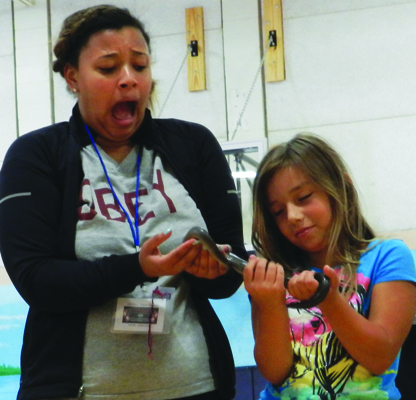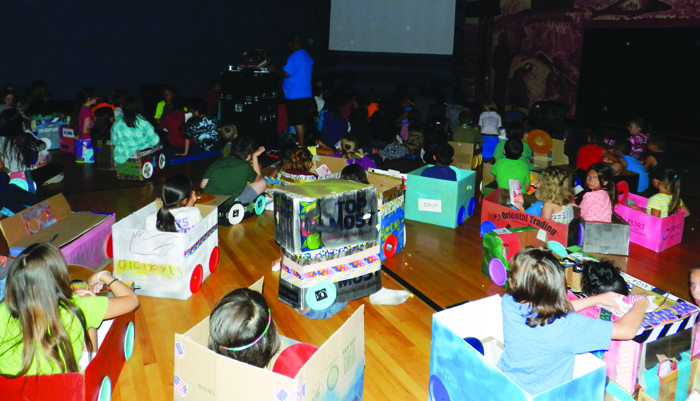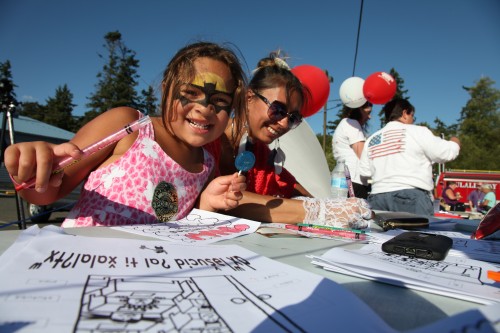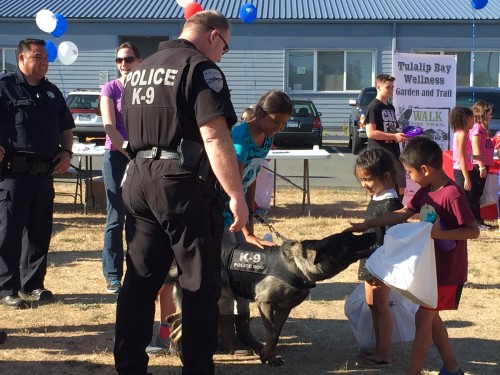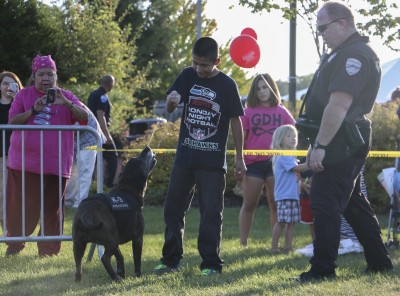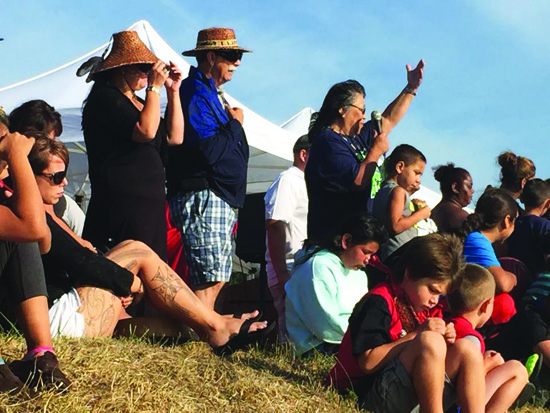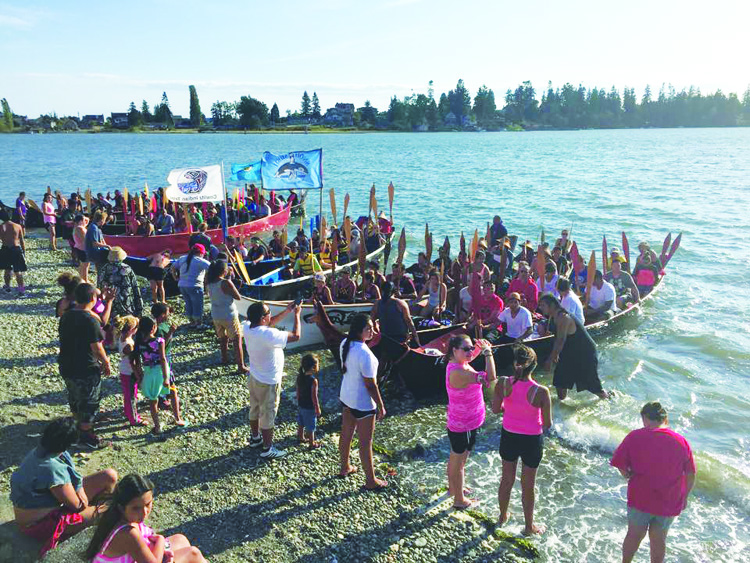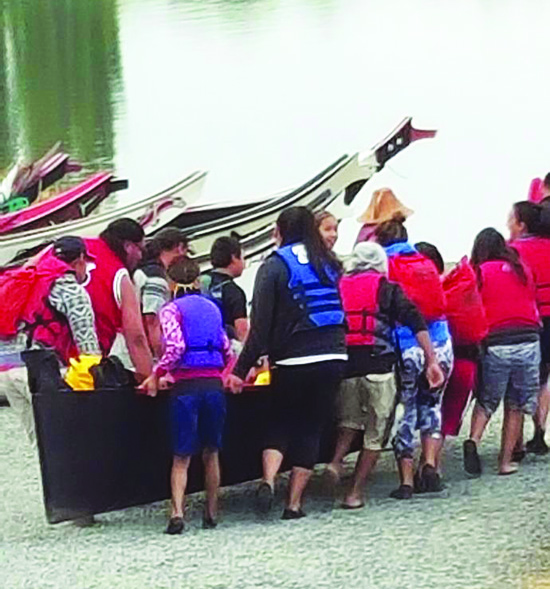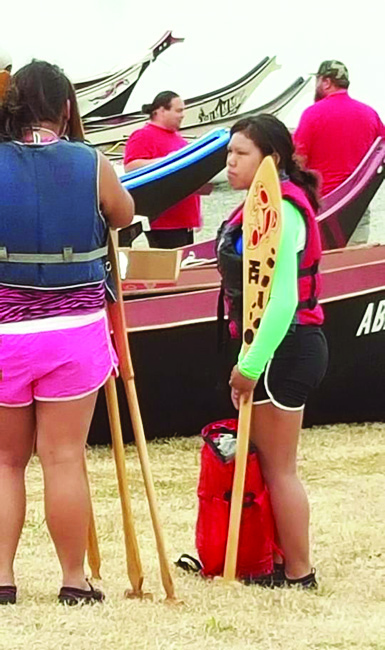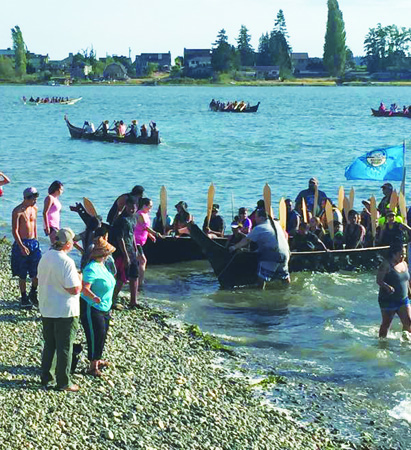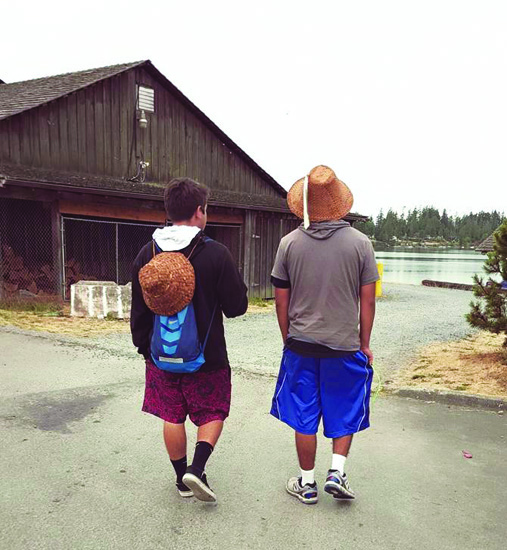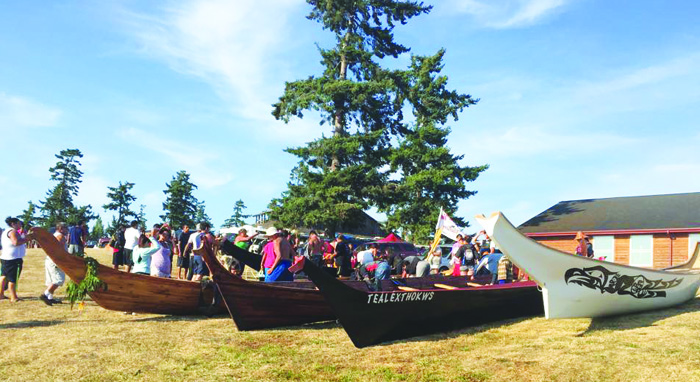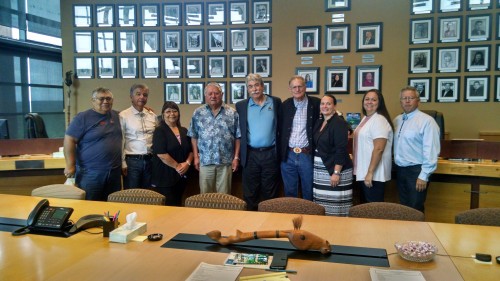By Niki Cleary, Tulalip News
It’s a nightmare. Whether it happens to you or someone you love, or just someone in your community, it is a trauma with vast ripple effects. Rape. Sexual violence. Child molestation. Just naming the crime is uncomfortable, scary, traumatizing. Imagine if it happened to you, to your best friend or sibling, and it’s every parent’s worst nightmare to think it could happen to your child.
“Victims might hold onto an assault for years without saying anything,” said Tulalip Chairman Mel Sheldon. “In the past, when they found the courage, or the right situation came up where they could talk about it, the statute of limitations may have passed. There was no justice for them. This is about sending a message to those that were victimized, letting them know that we care and from this day forward there will be justice no matter when the crime happened.”
According to the Department of Justice National Crime Victimization survey 284,350 people were victims of rape or sexual assault nationally. This doesn’t include domestic violence or intimate partner violence, which often includes a sexual assault component.
“We know Native American women are three times more likely to be sexually assaulted,” said Tulalip Prosecutor Brian Kilgore. “It’s an epidemic and it drives a lot of the trauma and grief behind the drug epidemic.”
Only a fraction of sexual assaults are ever reported and fewer still are prosecuted. The reasons why are far from simple. They run the gamut from cultural norms to the physical, financial and psychological pros and cons of reporting. Particularly, since the majority of sexual assaults are committed by someone known, or related to the victim.
A few of the lifelong effects of sexual assault include post-traumatic stress disorder, inability to form healthy attachments, sexual dysfunction, depression and anxiety. This is also further complicated by the reactions of those close to the victim when the victim discloses the crime. The fear of losing their support systems, or worse, being shunned or blamed for the assault, often stops victims in their tracks.
“This is about sending a message to those that were victimized, letting them know that we care and from this day forward there will be justice no matter when the crime happened.”
– Mel Sheldon, Tulalip Tribes Chairman
“If you have 100 sexual assault victims, maybe 10 or 15 will get reported,” explained Aaron Verba, the Domestic Violence and Sexual Assault Investigator for the Tulalip Prosecutor’s Office. “You might file three and then when it comes to a guilty verdict, maybe you’re down to one. It really comes down to the cost for the victim,” he continued. “There’s a 99 percent chance that you were victimized by someone you know or are related to.”
Because the perpetrator is often part of the community, peers and family may be unwilling to believe the crime happened. In many cases not believing the victim is a form of self-protection, Aaron described. Families don’t want to see another family member as an offender.
“Everyone is victimized,” he said. “For the family, if they support the victim sometimes they have to admit, ‘I believe this bad thing happened to you and I may have unknowingly been involved in the grooming process.’ The family has to decide whether it’s safer for them to support the victim or the perpetrator.”
Oftentimes, it’s easier to simply deny that the crime happened, to blame circumstances or even blame the victim. Jade Carela, of the Child Advocacy Center.
“Why don’t they come forward?” she asked. “As a community member, I feel like the community support isn’t there yet. We have sex predators in our community that hold high positions or spiritual positions in our tribe. Victims have to wonder, ‘Why would I come out in a community that still holds these people up? I’m not going to get support.’ In the past when they were ready, the statute of limitations may have been up, and then it was too late.”
“It’s especially hard to disclose if a victim has seen another victim disclose and it went badly for them. Sometimes people justcarry that trauma around with them,” Aaron continued. “It’s a conversation we have with every victim that walks in here. Or they may be thinking I’m going to put this person away for the rest of his life, and you have to have an honest and frank conversation about the fact that we may not get 40 years, or even 30. This person may be back in the community in one year.”
Particularly in Native American communities, after the perpetrator serves time, community will be looking to reintegrate the person into everyday life. That means that the victim will likely encounter the perpetrator at community events, family events and everyday activities like going to the grocery store.
“When you sit down and tell people realistically what is going to happen, sometimes they change their mind,” said Aaron.
With all of the obstacles and potential fallout surrounding sexual abuse, there are just as many positive reasons to disclose a sex crime.
Brian explained that most rapists have a history of sex crimes, and unless they’re prosecuted, a future. Making sure that a perpetrator doesn’t hurt someone else is a huge incentive for some victims.
“Rape kits are expensive to test,” said Brian. “The State of Ohio had thousands of untested rape kits sitting on a shelf and they paid to have them all tested. When they did they found a pattern because most rapists are serial rapists. It’s not a comfortable thing to say, ‘I was raped,’ but there’s a good chance if they’ve done it to you, they’ve done it to other people. The only way to stop them is to shine some daylight on it.”
Removing the statute of limitations on sex crimes isn’t just an empty political move, said Jade, it’s a step towards justice, healing for victims and an overall healthier community.
“As a community, we can show these victims that we love them by not being secretive about this. We need to educate our children, and come forward. Know that from here forward, whenever you are ready, we can still prosecute the crimes that happened to you.
“We always talk about the drug epidemic,” she continued. “Drugs are a symptom, they’re not the cause. The root cause is that when these drug addicts were little kids, things happened to them. If we want to eradicate drug use on the reservation, what we need to do now is keep our children safe.”
Aaron agreed, “There’s an incredibly high correlation between drug use and trauma. If you poll all the people who come through our court for drug offense, I’m guessing that 99.99% of them would have some sort of emotional abuse, neglect, physical abuse, or sexual abuse. Ultimately there’s a reason that you use drugs to change your reality, usually it’s because your reality sucks.”
Last, both Jade and Aaron agreed, disclosure is about healing.
“The women coming out now were children when this happened to them,” Jade said. “Hopefully, now they’ll feel safe enough to tell the reality about what happened to them so that they can get help. So that they don’t pass that on to their children.”
Aaron pointed to the new law as a sign of the changing times. But family support is going to be even more valuable.
“The important thing is how we support a victim,” he said. “When they disclose, they need to know they’ll be believed and someone will do something about it. The big thing about disclosure is that’s when you start healing. You can’t truly heal a wound until you take care of it, you can cover it up, you can ignore it or pretend it didn’t happen, but you can’t truly heal.”
Aaron also pointed out that sexual assault leaves scars that can take generations to heal.
“I heard once that it takes seven generations for sexual abuse to get out of a family,” he said. “That’s if the first person actually gets treatment, resolves issues and gets back to a somewhat healthy way. That person is still going to pass some of it on. You can’t not pass your life experiences on to your children, whether you know you’re doing it or not. We have people who have kept that stuff hidden for 30 or 40 years. The people on this reservation are still dealing with the effects of sexual abuse in boarding schools.”
This resolution is not retroactive. If the statute of limitations has already expired, the crime may not be prosecuted in Tulalip Court. However, Brian explained, it’s still worthwhile to report it.
“If you have DNA evidence, the federal statute of limitations runs from when you test the evidence,” he said. “For a lot of folks, the police may have a current file on the perpetrator, and any information will help them in their investigation. We can never promise that a case is going to be prosecutable, but we don’t know if it’s never reported.”
If you were the victim or witness of a sexual assault, or any crime, the first step is to call the police, regardless of how much time has passed. In emergencies always call 911. For non-emergencies you can reach the Tulalip Police Department at 360-716-4608.












